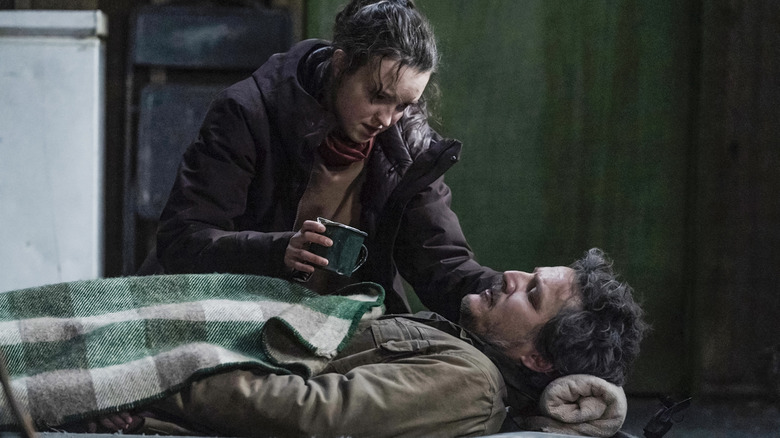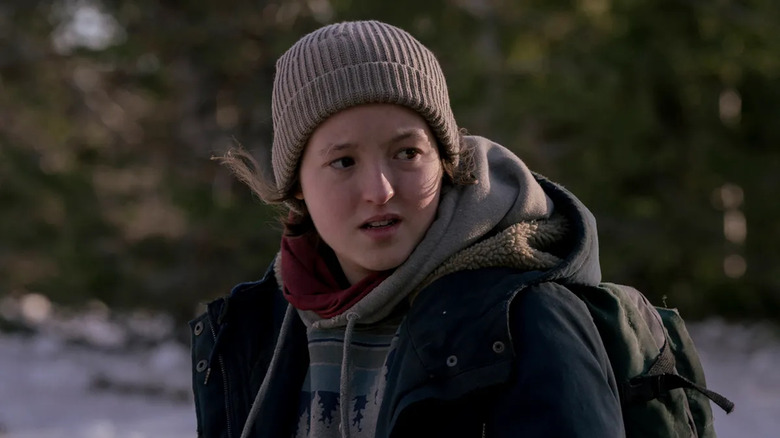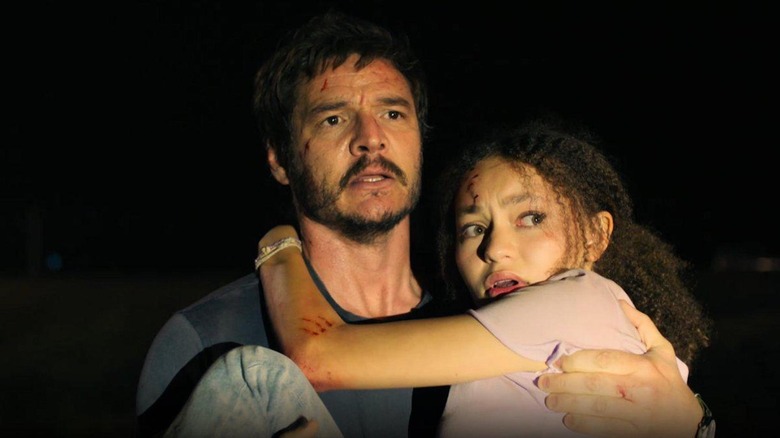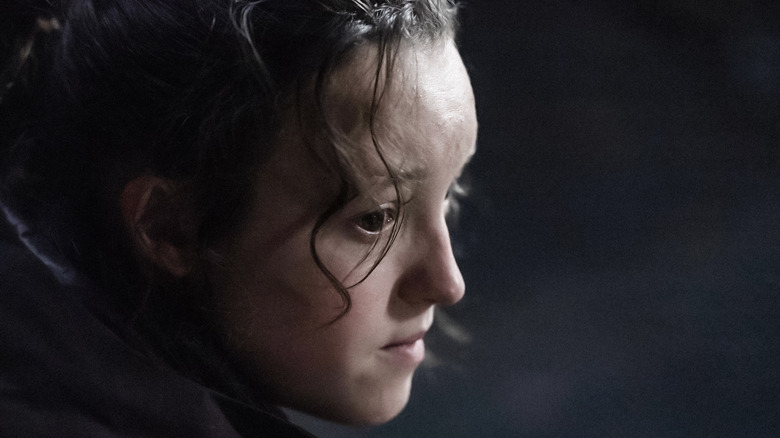HBO's The Last Of Us Captures One Of The Smallest But Most Important Moments From The Game
"The Last of Us" has been something of a case study in how to adapt a story from another medium. Showrunners Craig Mazin and Neil Druckmann have found the sweet spot between what works in a video game and what works as a more passive viewer, alternating between line-by-line reproductions of game dialogue and big changes.
Miraculously enough, based on what I've seen on social media, the usually incredibly demanding fanbase of the video game think that for the most part the big changes are for the better. To say I'm surprised by that is an understatement because the reputation of most fan bases these days is not exactly all puppy dogs and rose petals. If you deviate from the source material of a book, graphic novel, or video game in an adaptation, usually that results in Change.org petitions and review bombing, but "The Last of Us" has (mostly) skirted that.
Perhaps that's because Druckmann is so involved in HBO's retelling of this game, and it's difficult to say "they screwed up the story" when the guy who actually wrote and executed the story they loved is the one making the calls on the adaptation.
Or maybe it's because Mazin is a superfan of the game, and with Druckmann as its creator making sure they stick to what ain't broke, those key moments become enough to get the hardest of the hardcore fans to embrace the omissions and differences, and maybe even call the changes better than what the game gave us.
Two simple words
I've played through "The Last of Us" campaign four times now, so I can count myself as a big fan of how the original narrative unfolded, but the last thing I wanted the show to be was just a live-action recreation of what came before, so I've been delighted at the new characters, expanded backstories, and differences in perspective the HBO show has given us.
Still, even for me, there are emotional moments in the game that hit so well that I find myself crossing my fingers that they'll make it into the show. A big one happened in this recent episode, and it wasn't a huge set piece or crazy mushroom zombie scare scene. No, what I was keeping an ear out for was two simple words: "baby girl."
Druckmann has said from the beginning that ultimately "The Last of Us" is about love, and those two words come to symbolize love for the character of Joel Miller.
Joel in the video game and Joel in the HBO series are very similar. The character is a bit harder in the game, but both have the same natural inclination to protect themselves by building brick walls around their emotions. Joel and Ellie's relationship is so amazing because despite neither one of them want to open up to the other, but they just can't help themselves.
Tough characters finally let their guards down
In the prologue, we see Joel lose his daughter the night the world went to s**t. As he cradles her, he calls her "baby girl" over and over again. When I heard Pedro Pascal use the same term of endearment in the first episode of the HBO show, I was certain it would come back later — and I was right.
Both in the game and the show, the storytellers use "baby girl" to signify a huge change in this character. Even in the show, where Joel is softer and lets his emotions come out a bit more (there's no moment in the game that has Joel so nakedly admitting his own fears as the scene in episode 6 where he begs his brother, Tommy, to take Ellie because he's so scared he's going to fail her), he's still a character that is doing all he can to keep this girl at arm's length.
He knows he's in danger of caring for Ellie in the same way he cared for his daughter, Sarah, and over the course of eightish hours, he's slowly dropped wall after wall until there's just one remaining. That final wall falls in this episode when he reunites with Ellie, who just went through a crazy traumatic experience, and without thinking, he comforts her and calls her "baby girl."
Love will abide
This is the moment that Joel lets go and becomes Ellie's surrogate father. "Baby girl," whether subconsciously or knowingly said, means he sees Ellie as his daughter now.
For her part, Ellie's been on the surrogate dad thing for a while now. She let that be known in no uncertain terms in her reaction to Joel trying to pass her off to Tommy. She trusts Joel. She feels safe with Joel. She never knew her parents and has no one in a position of authority over her ever live up to this hardass who is escorting her across the country.
Druckmann says "The Last of Us" is about love, but I'll go one further. It's about a very specific love. It's about the love that exists between Joel Miller and Ellie Williams. The events of the two "Last of Us" games we've gotten have made that explicit. That love is a double edged sword. Both have done and will do horrible, cruel and unforgivable things in the name of that love. But it's also pure and beautiful in its own way. Just like love in real life.
Perhaps the reason why fans haven't lost their minds over the changes made in the HBO adaptation is because they recognize that this theme of love is being served and that all other details just don't matter as much as long as they get that one thing right. And with Pascal embracing Bella Ramsey and calling her "baby girl" just when she needs it the most, I think it's safe to say they got that one thing right.



